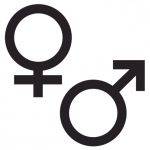
Moral compaigner Mary Whitehouse (1910-2001) is commonly remembered (if she is remembered at all) as an interfering moral busybody, an object of derision. Indeed, the entry about her on Wikipedia is laced with scarcely-disguised contempt.
I certainly did not expect the BBC to publish a thoughtful and sympathetic re-assessment of her work. But publish it they did, in the form of this article, by Samira Ahmed.
Here are some extracts.
‘The Christian decency campaigner Mary Whitehouse’s name became shorthand for anti-liberal prudery and censorship, but more than 20 years after her death, do her diaries reveal a woman who was ahead of her time in warning about the corrosive impact of internet pornography on society’
She was successful in lobbying lawmakers to draft legislation:
‘Her successes include the 1978 Protection of Children Act, which criminalised for the first time the making of indecent images of children, the 1981 Indecent Displays (Control) Act which controlled sex shops and the displays of pornographic material in newsagents, and the 1984 Video Recordings Act, to regulate the explosion in the sale of extreme content (so-called “video nasties”) in the new Wild West of home VCRs.’
…









